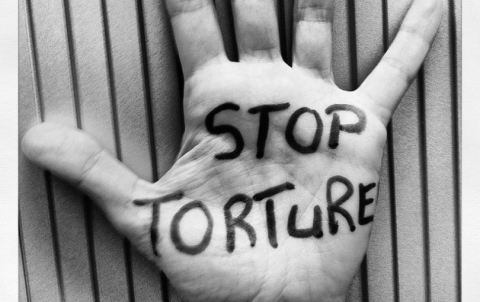Freedom from Torture
Civil Society Coalition against Torture and impunity in Tajikistan

We were asked by the PO Human Rights Center to review the Criminal Punishment Code of the Republic of Tajikistan (hereinafter “Punishment Code”) and to assess its consistency with international standards contained in the United Nations’ Manual on the Effective Investigation and Documentation of Torture and other Cruel, Inhuman or Degrading Treatment or Punishment or Istanbul Protocol (available at: www.ohchr.org/Documents/Publications/training8Rev1en.pdf).
In reviewing the Punishment Code we found many advanced democratic principles in place, including main aim and objectives of the legal document, general legal principles, principles of equality and humanism, participatory role and opportunities of civil society in main activities, also main principles, rights and obligations of inmates.
However we are deeply concerned that some provisions of the Punishment Code are inconsistent with international standards for effective documentation and investigation of torture and other Cruel, Inhuman or Degrading Treatment or Punishment, in particular:
Article 19 in paragraph 1 states that prisoner can complain to defend his rights but in the same article paragraph 3 says that complaints of prisoners are directed through administration. This rule violates main principle of confidentiality of complaints, especially when the complaint is about abuse of human rights, torture or any other form of ill-treatment - it creates a huge risk to the prisoner for re-traumatization and increases the possibility to be subject of repeated violence.
Recommendation - To elaborate standard referral pathway for complaints of prisoners directly to investigation, without involving administration. According to international standards, there must be mechanism and standard referral pathway for information from the prisoner directly to the investigation unit of the General Prosecutor's office or other legal body responsible for investigation of such cases in the country, without passing through administration.
Article 22 states that after arrival or transferring prisoner to the new facility the administration must inform family members of the prisoner about his location during 10 days from moving. The terms for informing family members or legal representative have to be minimal possible, in order to decrease a risk of un-controlled placement of the prisoner in un-controlled area, where is much higher risk of inhuman treatment, and to ensure full procedural safeguards for detainee/prisoner.
Recommendation - To decrease the term of informing family members from 10 days period till the minimum possible.
Article 24 states about forced medical treatment of prisoners with tuberculosis, alcoholism, narcotic drug addiction and toxicomany. This article violates very important international medical and human rights standards on prohibition of forced medical treatment, as it violates one of the main principles - the right to health. Involuntary medical treatment of mentally ill patients is regulated differently and must be under strict legal and professional control by existed legislation. But any other forms of illnesses do not go under same principle and forced medical treatment of these diseases must be abolished.
Recommendation - Consider complete change of the Article 24 about forced medical treatment according to international standards: United Nations Standard Minimum Rules for the Treatment of Prisoners (the Nelson Mandela Rules) - available at: https://www.unodc.org/documents/justice-and-prison-reform/GA-ESOLUTION/E_ ebook.pdf; Standard Minimum Rules for the Treatment of Prisoners - available at: http://www.ohchr.org/EN/ProfessionalInterest/Pages/ TreatmentOfPrisoners.aspx;
Article 105 in the paragraph 5 states about forced feeding and medical treatment of prisoner that also violates very important international medical and human rights standards on prohibition of forced medical treatment - see above. The medical treatment in emergency situations must be regulated in a different way, while in the case of conscious denial for feeding and medical treatment the forcing activities are violations of basic human rights.
Recommendation - Consider complete change of the Article 105 according to international standards: WMA Declaration of Tokyo - available at: http://www.wma.net/en/30publications/10policies/c18/; WMA Declaration of Malta - available at: http://www.wma.net/en/30publications/10policies/h31/; Standard Minimum Rules for the Treatment of Prisoners - available at: http://www.ohchr.org/EN/ProfessionalInterest/Pages/ TreatmentOfPrisoners.aspx;
Article 195 in paragraph 3 states that medical treatment and health service management, as well as involvement of medical personnel for this purpose are regulated by Ministry of Defense. Here are mentioned basic and very professional medical activities, which may always include medical methodologies and knowledge, that cannot be regulated only by Ministry of Defense without co-regulation from Ministry of Health. If this Article considers unilateral regulation of medical activities by Ministry of Defense because medical facilities are under institutional supervision of this Ministry, this is wrong consideration as despite institutional belonging the medical activities and medical professionals need methodologically and professionally to be regulated by Ministry of Health too.
Recommendation - Include Ministry of Health as a co-regulator, together with Ministry of Defense, at the end of the paragraph.
Review of the Criminal Sentence Execution Code (CSEC) of the Republic of Tajikistan on its compliance to international standards, prepared by Rusudan Beriashvili M.D., Ph.D. associate Professor of Forensic Medicine, Physicians for Human Rights
The analytic report was prepared with the support of the Ministry of Foreign Affairs of Finland and the United Nations Development Program, PO “Human Rights Center”.